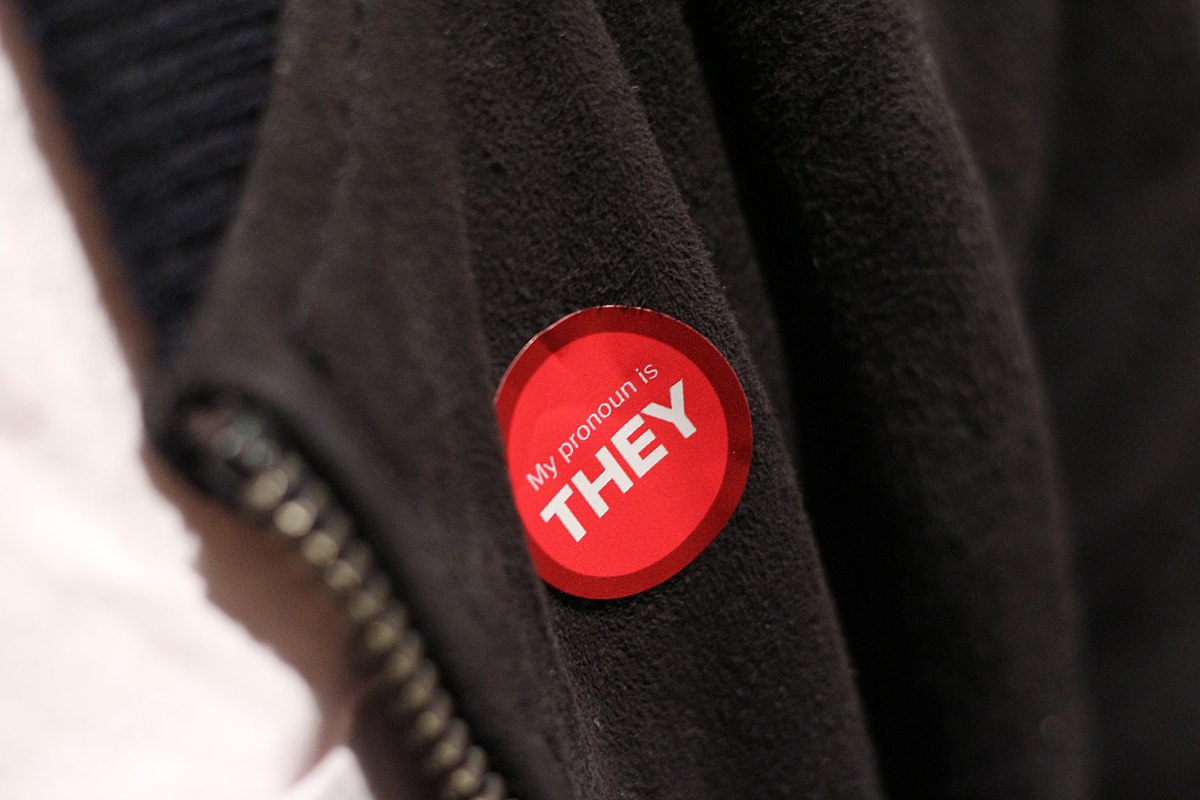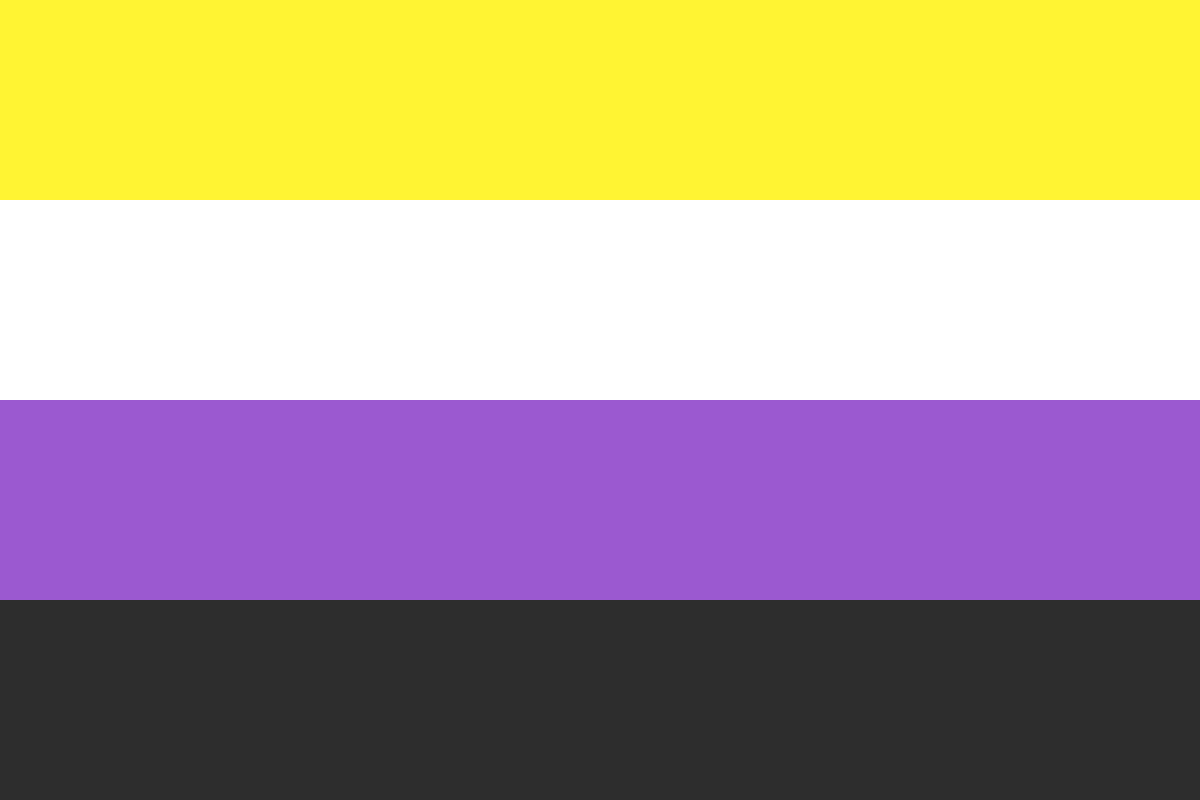Just read this in a newspaper: sorry............what on earth does it mean?
'Non-binary' gender identification
Collapse
X
-
 GuestTags: None
GuestTags: None
-
My understanding is that young people who have the experience of being born in a body as (say) male but experience themselves as female are adopting the term 'non-binary' to describe their gender; and of course also those who were born female but experience themselves as male. (I have no direct, or indirect, personal experience of this.) I would assume that this is not a new phenomenon, but one which the internet - as described by some of the subjects in this piece - has enabled those experiencing it to learn from others, and to become transparent about their identity.
-
-
I think it will also encompass those who have yet to decide/work out where they are on the gender spectrum and don't want to be constrained by the simple male/female(binary) option. Those in the article are still young, and such periods of uncertainty are for many youngsters a part of growing into adulthood. The difference now is that they are free (relatively speaking) to be open about their feelings, and to expect to have those feelings taken seriously. In some respects I find gender-fluid a better term as it seems to me to be a more accurate description of what may be a situation that changes over time, and won't necessarily lead to a permanent difference from their birth body, nor even a same sex orientation.Originally posted by kernelbogey View PostMy understanding is that young people who have the experience of being born in a body as (say) male but experience themselves as female are adopting the term 'non-binary' to describe their gender; and of course also those who were born female but experience themselves as male. (I have no direct, or indirect, personal experience of this.) I would assume that this is not a new phenomenon, but one which the internet - as described by some of the subjects in this piece - has enabled those experiencing it to learn from others, and to become transparent about their identity.
It's the use of they/them I struggle with, not because of inherent objection, but because of so many decades of not using plural terms for singular circumstances. It will take a while for writers to sort out usage to avoid confusion as well - there is not always any/enough context to be clear whether an individual or that 'group' in general is being referred to, and there will be occasions where that distinction is important.
Comment
-
-
As English does not provide a gender neutral pronoun, 'they' seems the unfortunately obvious choice, though some writers use the inelegant 's/he'. There is some precedence for this usage of 'they', for example in referring to a person where anonymity is required. (E.g. the source said that there was reason to believe the rumour, although they were unable to provide evidence.)
Comment
-
-
When you think about it, the use of 'they' as a singular word is complete nonsense. If it were singular, it would use the singular 3rd person form of the verb:
they is
they goes
they has
they eats
they sings
etc.
But the word 'they' is invariably followed by the plural form of the verb.
Hence, inelegant as it may be, I prefer the use of he/she.
If it sounds pompous and clumsy, the sentence can often be rewritten:
'The source said that there was reason to believe the rumour, although evidence was not provided.'
Comment
-
-
This has been the subject of discussion in these part before, and I know that modern usage is changing what I grew up with, and historical usage has differed but a problem is when the writer's basic skills are not adequate to finding a better/alternative form of words when that option is available - your example could be rephrased to avoid that use of 'they', but at least, accepting modern usage, it is clear 'they' refers to 'the source'Originally posted by kernelbogey View PostAs English does not provide a gender neutral pronoun, 'they' seems the unfortunately obvious choice, though some writers use the inelegant 's/he'. There is some precedence for this usage of 'they', for example in referring to a person where anonymity is required. (E.g. the source said that there was reason to believe the rumour, although they were unable to provide evidence.)
An newspaper article I read earlier this year about this topic used individual names and they/their, and it was nor always clear whether they/their was collective or the individual. It was not a well written article anyway so I think the writer either couldn't see that parts didn't make sense, or didn't know how to rephrase to clarify - not sure what happened to editorial scrutiny. A pity as the subjects themselves had interesting things to say.
Comment
-
-
So what if some people misused the language in the past. That doesn't excuse it now. They had all sorts of terrible things in earlier centuries - ducking stools, the stake, the rack, crumhorns... Do we want them now?Originally posted by vinteuil View Post.
... English has used a singular they since the fourteenth century. Keep up, Alpie!
.
Comment
-
-
 Count Boso
Count Boso
For most people, language is simply a useful tool to communicate their meaning, and nuances of what they mean. If, "My neighbour wasn't clear what they meant" does the job they want it to do, job done. What purpose does it serve to complicate matters?Originally posted by Eine Alpensinfonie View PostSo what if some people misused the language in the past. That doesn't excuse it now. They had all sorts of terrible things in earlier centuries - ducking stools, the stake, the rack, crumhorns... Do we want them now?
Comment
-
 Guest
Guest
It was primarily the adj 'non-binary' that fooled me - seems to be a contradiction in itself let alone what it has come to mean / been coined to signify.
Comment
-
It's a way of expressing "it's not either/or(female/male)" for them? The gender equivalent of the autism spectrum perhaps, where there is quite a lot of 'in-between'.Originally posted by DracoM View PostIt was primarily the adj 'non-binary' that fooled me - seems to be a contradiction in itself let alone what it has come to mean / been coined to signify.
Comment
-
-
 Guest
Guest
Yes, I get that NOW, but at first reading, you.............well, you just puzzle, maybe give up and.... and then go away.
Does the newspaper assume everyone knows what it means??
Comment
-
... well, there's always wiki to help -Originally posted by DracoM View PostYes, I get that NOW, but at first reading, you.............well, you just puzzle, maybe give up and.... and then go away.
Does the newspaper assume everyone knows what it means??
.
Comment
-
-
That's just the point. Erosion of language, creating an ever increasing number of irregularities, makes it more and more complicated as time goes on. The British are notoriously bad at learning foreign languages. I sometimes wonder whether that has something to do with the difficulty we have with our own tongue.Originally posted by Count Boso View PostWhat purpose does it serve to complicate matters?
Guy Deutscher's "The Unfolding of Language" dissects the whole subject of changes in language, discussing many opposing arguments. It's a fascinating book.
Comment
-



Comment